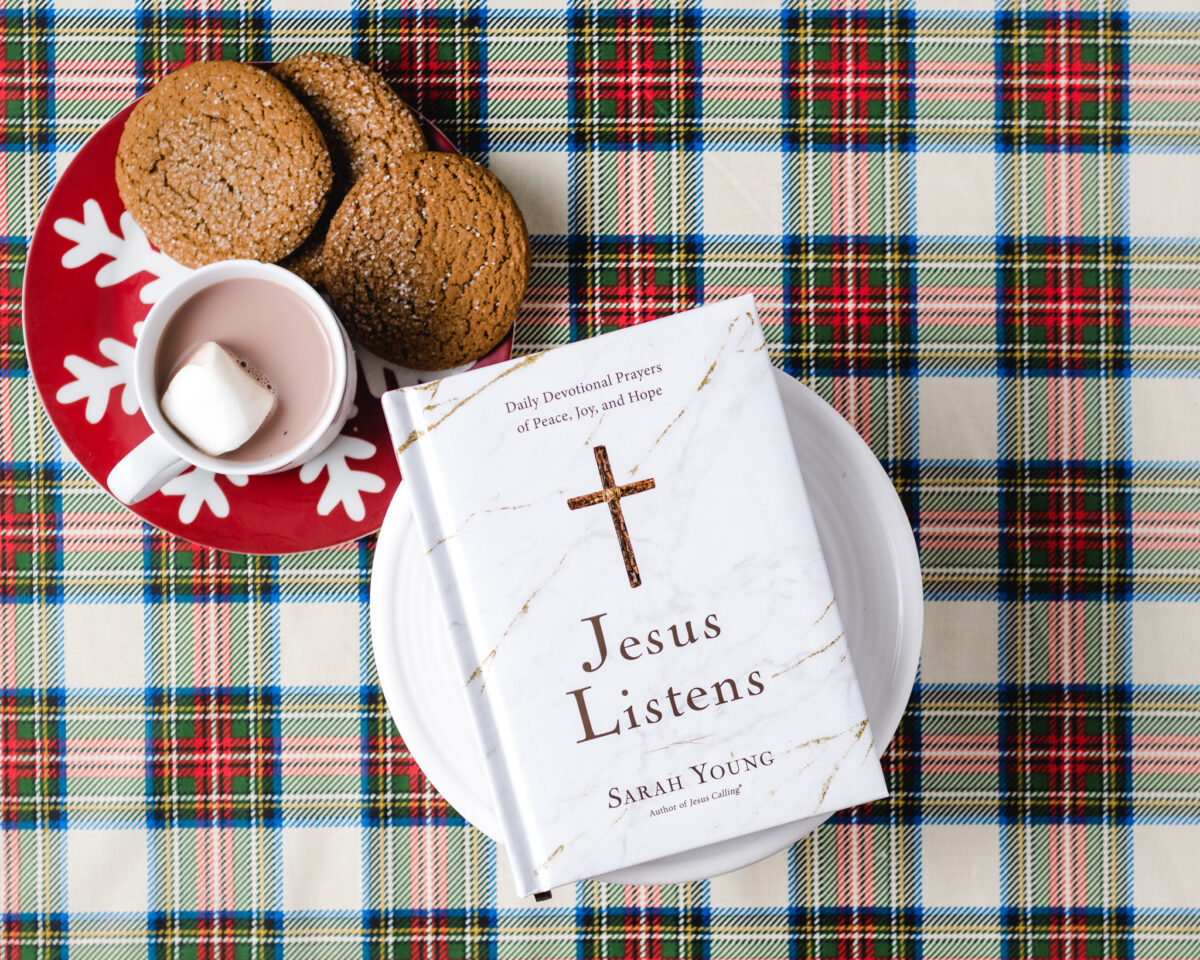When You Don’t Feel Joyful, God Still Sees You at Christmas: Steve Wariner and The Isaacs
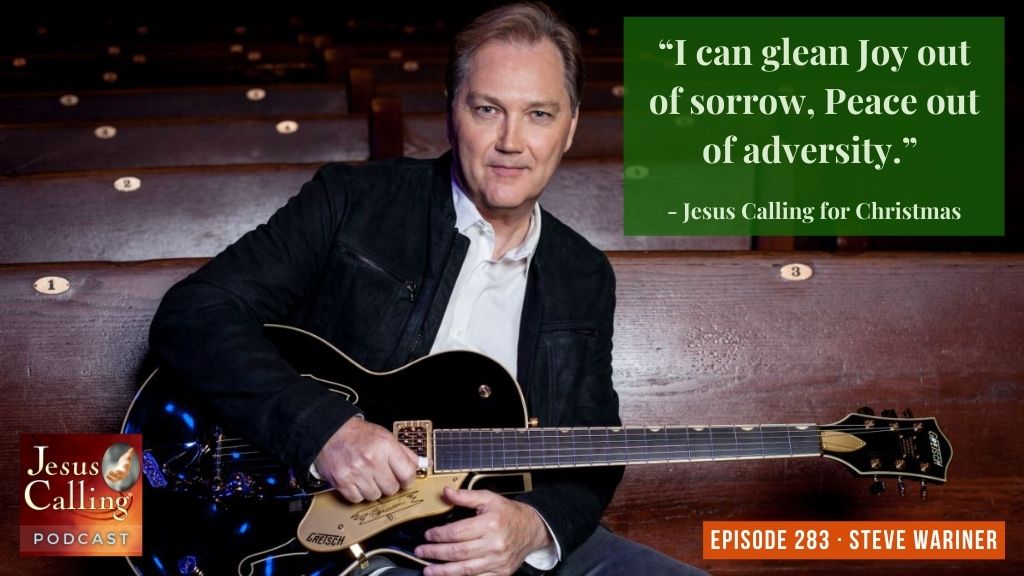
Steve Wariner: I’m a very faith-driven person. It’s not something a lot of people may know about me, but it’s something that is a part of my life and it shows up in my music a lot. I have people that pick up on that sometimes, and they’ll ask me about it, not knowing anything about me or not knowing me at all. And they can sense that I have that type of faith, you know, in some of my music, and I think it must show somewhat.
When You Don’t Feel Joyful, God Still Sees You at Christmas: Steve Wariner and The Isaacs – Episode #283
Narrator: Welcome to the Jesus Calling Podcast. Though Christmas is typically a happy time of year, full of gifts and parties, and celebrations, many find it hard to find joy at Christmas time. Maybe you’ve had a loss, or received some bad news, or a scary diagnosis. Through all the celebrating and good cheer, God still sees you. And in Him, you can draw strength that will never fail you. Jeremiah 33:3 tells us that God is just waiting to do mighty things if we’ll just reach out to Him. “Call to Me,” He says, “and I will answer you, and show you great and mighty things, which you do not know.”
We wish we could know what our future holds or if and when we’ll get out of a season of hurt and pain—but what we do know is that we can call on God and He will be there for us. His very existence assures us that we’re never alone. Our guests this week, country music star Steve Wariner and country gospel group The Isaacs know a little bit about what leaning on God looks like, and how He shows up not only in the Christmas songs and celebrations we hear and see at Christmas, but through times of confusion, doubt, pain, sickness, and sorrow.
Let’s start with Steve Wariner’s story.
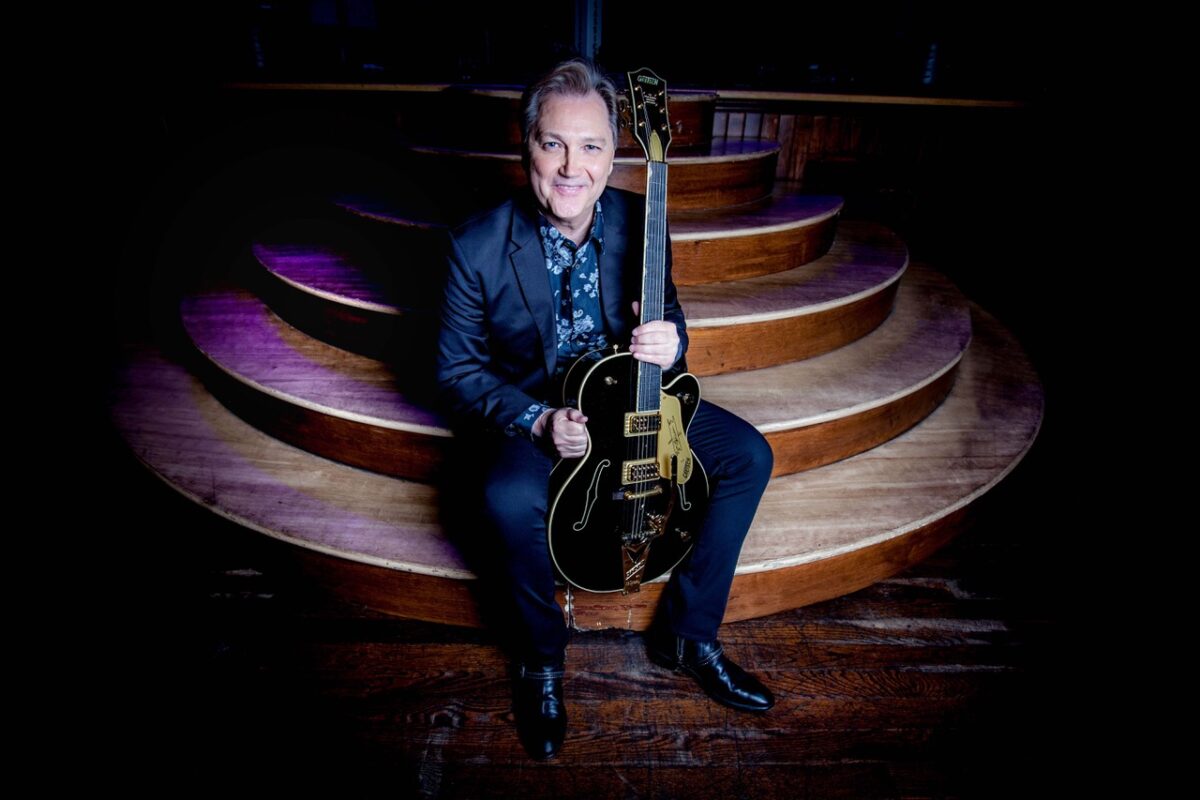
Steve: Well, I’m Steve Wariner. I live in Nashville and have been here since I was a teenager. I’m originally from Noblesville, Indiana, which is a suburb of Indianapolis.
I’ve actually been on an airplane before and people wouldn’t know me and they’d say, “Well, so what do you do? What business are you in?” And I’m actually stuck for an answer because you don’t want to give too much, but then you go, “Well, what do I do?” My lie sometimes is, “Well, I’m a country music semi-star.” You know, or sometimes I’ll say, “I wear a lot of hats,” so I can actually honestly say that. I produce music and I’m a publisher. I have a publishing company. I have since 1976, so I can say those. But I paint and I’m an artist. I paint a lot, too. So I’m lucky in my life that I’ve been doing it a long time, but I get to do kind of what I want to do now so I can kind of swap hats and do whatever. But I like to look at myself as a record producer or a singer, songwriter, guitarist, whatever. I think I don’t know what I am, to be honest. I don’t know. I’m a lot of different things. Depends on what the day is, I guess.
Raised Up in Faith & Music
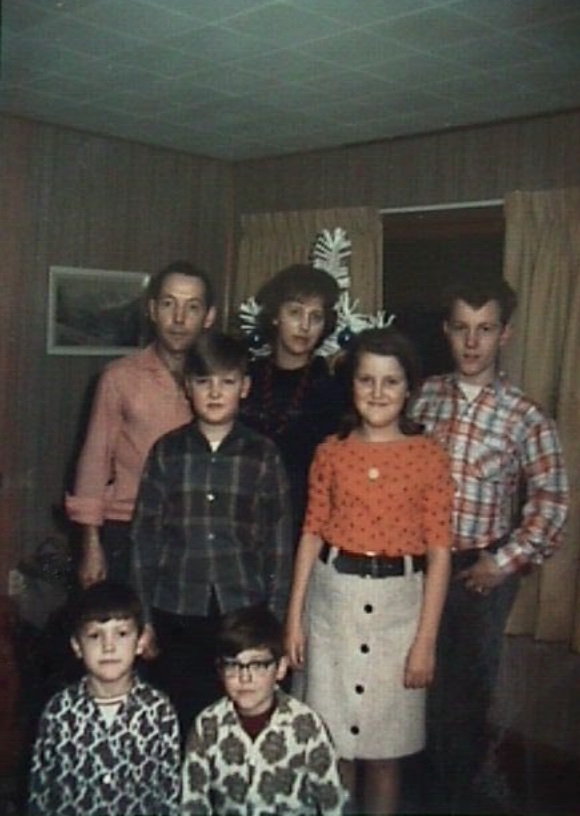
My mom and dad both, they were very faithful people all the way, as long as I can remember really. And I remember the first time I played music was in church, the first music I heard was in church. My Uncle Sam was a minister and I’ve heard him preach many, many, many times and he was the coolest guy. He could play music, he could sing, he could play harmonica like nobody, and [was] so talented, and he was a rounder in his day. And one day I think he was just sick and tired of being sick and tired and was definitely at the bottom of the barrel and pulled himself up and was chosen, I think. You know, he had the calling and spent the rest of his life from being in his twenties spreading the gospel and preaching the rest of his life.
“I remember the first time I played music was in church. The first music I heard was in church.” – Steve Wariner
I knew what I wanted to do at a very early age. I think around twelve-ish. Around the time I went to Indianapolis with my dad, he made a record, a 45, just kind of a regional record thing. And he went down to one of the TV studios in Indianapolis, and I played on my very first recording session. I was in the sixth grade, and so I knew around that time as I listened to the WIRE radio, the country station up there, and I’d listen to Lee Shannon and some of those guys, Bill Robinson. And I would listen to the late-night with my little transistor radio, and I knew that’s what I wanted to do. I wanted to be in music. I don’t ever remember saying I want to be a “star,” but I wanted to make music. And so I knew early on that’s what I’d be doing.
And then I had the opportunity to meet Dottie West, and she heard me playing and offered me a job. And she said, “Can you go on the road immediately?” And I said, “Well, Dottie, I’m a senior in high school. Yeah, no, I can’t. I’ve got to graduate.” You know, so my joke is this music thing got in the way of my art career. So I graduated early and found myself at seventeen/eighteen years old, traveling the world, you know, jumping on an airplane with Dottie West. My first time I was ever on a plane and flew to London as my first flight, you know, and wound up doing a Europe tour and stuff. And I’d never even been out of Kentucky and Indiana, you know, so it’s kind of an eye-opening experience. I grew up very quickly, you know?
There was an RCA tour called Cavalcade of Stars. It was all over Europe and Great Britain, and I was in Dottie’s band playing bass and we backed up Bobby Bare, Jim Ed Brown. We were the backing band. And then Danny Davis, Nashville Brass, and the last leg of that tour, the great Chet Atkins, who was the head of RCA Records at the time. And so I was just like, “Oh my gosh, I’m going to meet my hero, Chet Atkins.” And I did. I met him in London at Wembley.
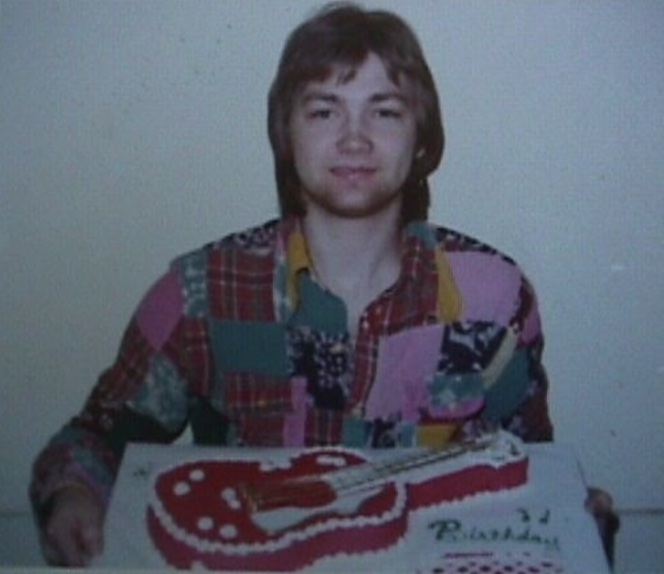
I was eighteen years old, just turned eighteen, and meeting the hero that you set and try to learn to play by listening to your dad’s stereo, you know, my dad’s hero as well. So it was really a moment, you know, to meet him and then work in the studio with him and make records. And, you know, then he was kind enough—after we made records, we had a couple of sessions. I was really one step from being out on the street to be quite honest. It was rough. I mean, I had no money living here by myself and working with Chet, trying to get that going. And really didn’t have much money in my pockets, to be honest. And Chet probably knew that somewhat, and he asked me to go on the road and play with him, which I did, and it was a great opportunity. I found myself going around Europe again and playing around the world with Chet and then while we were waiting for a record to happen, eventually, my first hit happened and Chet brought me in and fired me from his band at that point. Which I always say I got fired from the best, you know, he fired me. But it was great, it was with love because he wanted me to get out on my own tour and to get my own band.
There are several nuggets of wisdom I learned from Chet, but I think one of the biggest things was early on, he said, “You know what? Here’s the thing I want you to remember: it doesn’t happen the same way for every artist.” He says, “The thing you need to remember is just to keep working hard, do what you do, be yourself and don’t ever give up.” And he goes, “It’ll happen.” He goes, “It’ll happen, it just doesn’t happen the same way for each artist.” And that really meant a lot to me.
Chet Atkins’ Faith Through Cancer
You know, [Chet] battled cancer several times, three or four times in his life. But I was with him a couple of times when I saw this up close. I was touring with him when he was having to do shows, and I saw that tenacity, you know, his will. And honestly, the average people didn’t even know it, the band and his family knew what he was doing, but nobody even knew it, you know, and he really had a lot of willpower and a lot of strength.
Yeah, you know, I think that’s when the faith part comes into play, right? I mean, that’s when you turn to your faith. And I remember I played my album that I produced. By that time I’d signed with Capitol Records and I was producing and I did three albums for Capitol, the first being an album called Burnin’ the Road House Down, and the second track was “Holding for Heaven.”
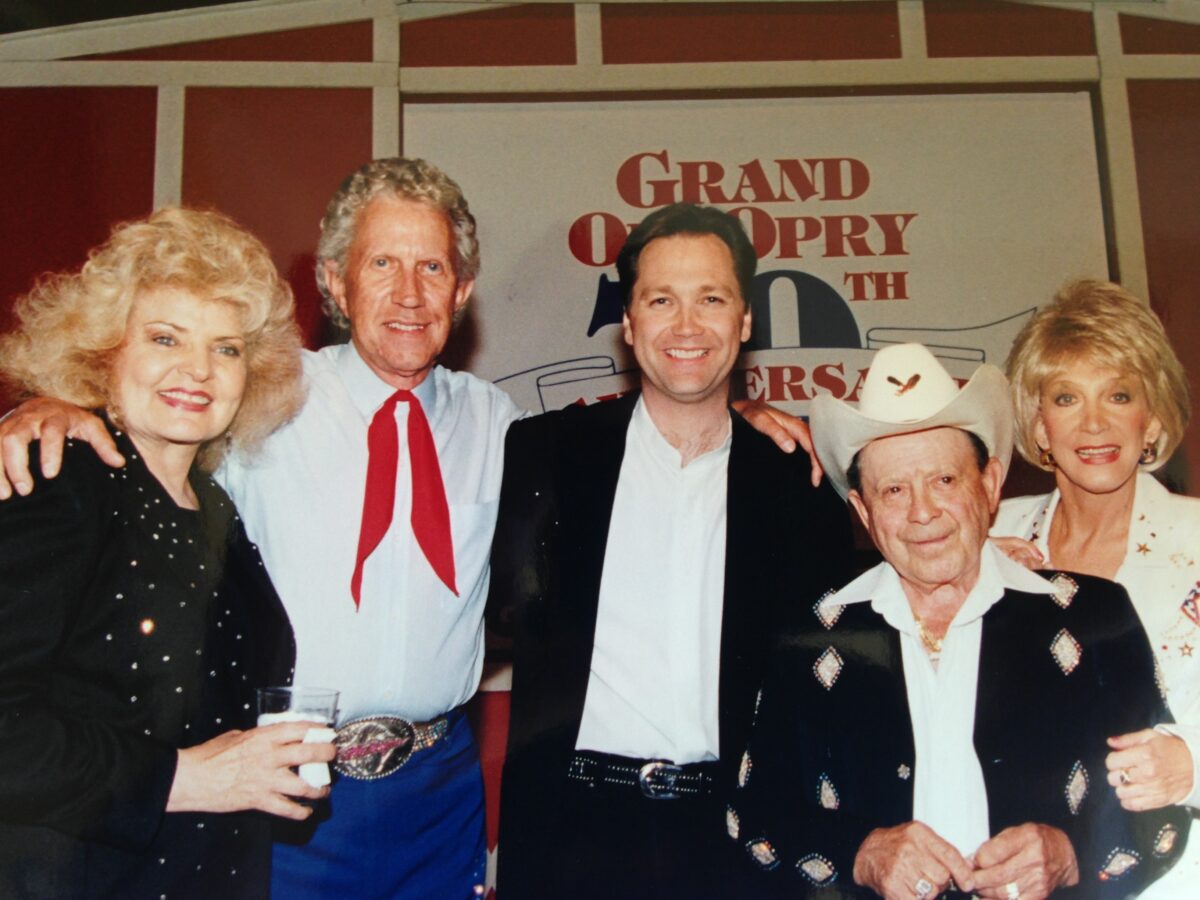
And I remember that album was just coming out and Chet called one day. And he says, “Why don’t you bring your album over to the house?” And he was sick already, but starting to get sick. And he said, “I want to hear that. I want to hear your stuff.” And see, now I’m the producer. I produced every inch of that album. That was the first album I made. That was the biggest record I did, and the first time I ever made money from a record label, you know? But so I go over to Chet’s house and we sit in his kitchen, at his little table there, and he has a little boom box. And I put this disc in and play. I play two or three tracks. I just reached up and stopped it—I get emotional telling the story, I haven’t told it a lot—I stopped it after about four songs and Chet just goes, “That’s really, really, really beautiful work.” And I said, “Oh, here’s my hero producer/artist saying this to me.” And he said, “Really, a great job.” And he goes, “By the way, why did you stop it?” And I said, “Well, I’m not going to play you the whole record.” He goes, “Yeah, I want to hear all of it, every bit of it. I want to hear all of it.” And so we sat at his kitchen table with the little boombox thing, and I played every bit of that record. And he got done and he looked at me and he said, “You know, I guess I did something right, didn’t I?” And I was like, “Oh my gosh, that is beautiful. That just killed me.” And there he was. He was already in decline and not healthy, and that was just like passing a torch, almost to me, that’s the way I felt. I took it that way.
But yeah, in those times, you know, watching him go through that and watching my mom—two years she fought, you know? It was a real lesson to my brother and I, Terry, well all of my brothers, but especially uis two. With my mom and watching those battles, you know, it’s where your faith comes in.
But he was a brilliant mentor and a great friend all the way up until the very end in July of 2001, [when] he passed. And I stayed in touch, I still do, with his family, his daughter here and his family, his grandkids. So, yeah, he was a major part of my life, you know, all the way around. And he knew that too, because I let him know it, and I’m glad that he did.
It’s been very difficult these past few years. It’s been crazy. And I don’t know that I’ve seen in my personal experience—I know a lot of people would concur, but I’ve not seen a lot of this at this point. My son’s best friend passed away, right, from COVID. He died by himself, and no one could even go in because of the quarantine situation and all. So, so many of those things happening, and some lost some really good friends to COVID early on. I would talk to some other friends and they would say, “Yeah, I heard so-and-so may have COVID,” and it seems like that you’re keeping count. But I mean, I just kept having a lot of friends that were very close to me that I either lost or they lost someone and the circle kept closing in and closing in.
And so I think at that point, I found myself turning to that faith a lot, you know, that we spoke of earlier. So during that, during those really hard times when you look around and so many friends are going away and friends of friends or relatives that it was starting to get really close, the circle closer, I found myself really turning into faith a lot. And really, you know, you get down on your knees and you go, Man, this is an unprecedented time we’re in. And you draw back on those early experiences in your life lessons and turn to those things you know. It’s very humbling, these times, that’s for sure. And I try to turn to some people that need some help and help them if I can, especially the elderly and stuff through those days.
“During those really hard times . . . I found myself really turning into faith a lot. You get down on your knees and you go, Man, this is an unprecedented time we’re in. And you draw back on those early experiences in your life lessons and turn to those things. It’s very humbling, these times, that’s for sure.” – Steve Wariner
I thought it was a good time to do this kind of music. I love singing about the real Christmas. I’m really proud of this album because it’s a little bit of everything, it crosses through the real Christmas stuff, then it’s got the instrumental guitar stuff and then it’s got the stuff about family and about being together at Christmas. And so it’s all over the map, but I love it. It does stay in that same feel. So I’m very, very proud of it. It really does my heart good to play that music and bring it out and sing beautiful melodies, and the real lyrics that really mean what Christmas is.
“It does my heart good to play that music, and sing beautiful melodies and lyrics about the real meaning of Christmas.” – Steve Wariner
Narrator: You can get Steve’s latest Christmas record, Feels Like Christmas Time, wherever you buy music.
Stay tuned to The Isaacs’ story after a brief message.
Find God’s Peace and Hope, with Jesus Listens
Christmas is the most wonderful time of the year, but it can also be a season that makes us feel overwhelmed, anxious, and stressed. The good news is that you can find peace and hope in Jesus at Christmas time. There’s a brand NEW 365-day devotional prayer book called Jesus Listens from Sarah Young, the author of Jesus Calling.
With Jesus Listens, you can strengthen or renew your relationship with God through the continual conversation of prayer. Jesus Listens is perfect if you are busy with life’s demands but want to grow in your prayer life, looking for rest and hope from difficult times, or are not even sure how to pray. Jesus Listens makes a great gift to friends and loved ones who also may be struggling with finding peace in their days. By praying Scripture through this daily devotional prayer book, you’ll experience how intentional prayer connects you to God, changes your heart, and can even move mountains.
For more information on how to get the new 365-day devotional prayer book, Jesus Listens, visit JesusCalling.com/JesusListens.
Narrator: Next up, we’ll hear from the musical group The Isaacs, consisting of Lily, Sonya, Rebecca, and Ben, who share what it was like to grow up in a home rich with the legacy of music and faith, and how they’re seeking to create family-friendly music as they travel on the road together.
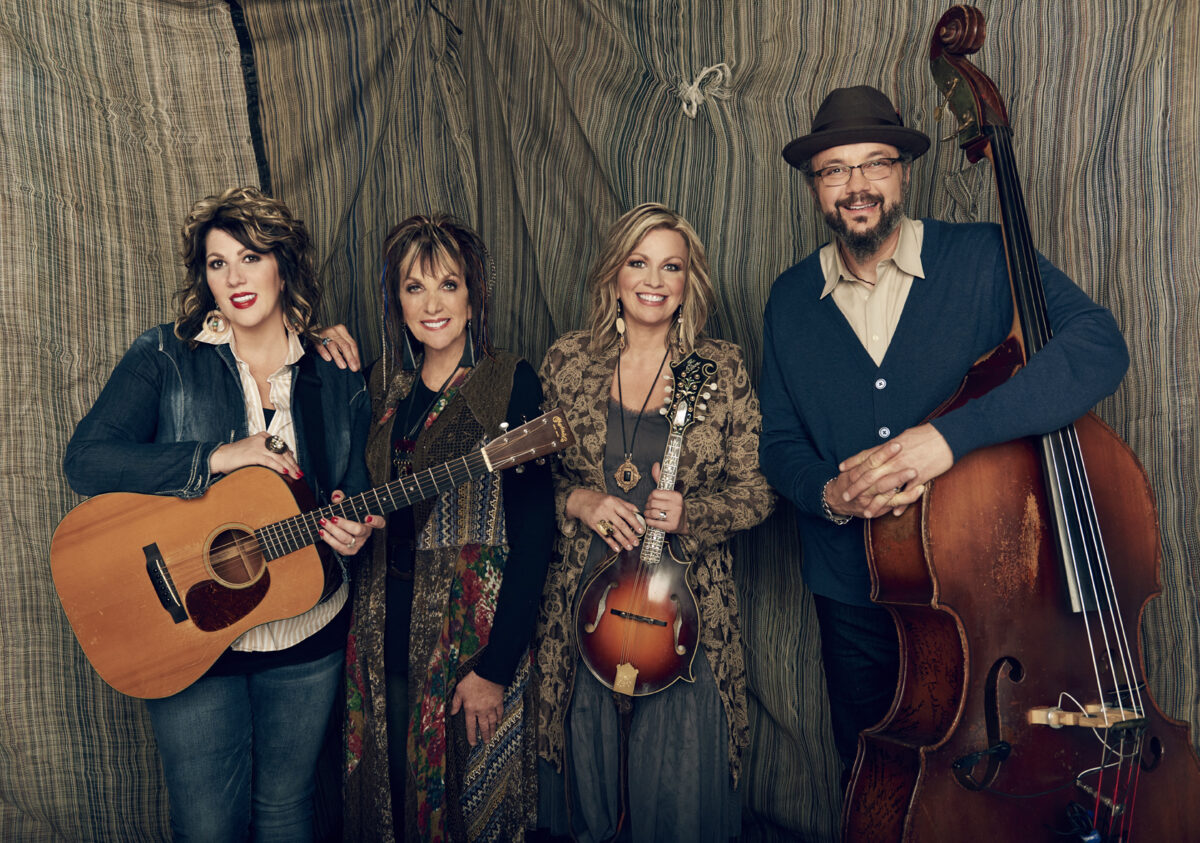
Lily Isaacs: I’m Lily Isaacs and I’m the mother of these three amazing young people here. And I’m also a performer. I’ve sung all my life and I’m also a book author. And I’m very proud of being able to do that as well. So I’m proud of my family.
Sonya Isaacs Yeary: My name is Sonya Isaacs Yeary. I am her middle daughter and her favorite. Sorry, guys! But we’re family and we have a lot of fun, you’ll see that. But I am the mandolin player for the Isaacs, and I am also one of the lead singers. I sing the high part also and married my husband, Jim Yeary, he is a songwriter and also writes most of the songs that we do that aren’t cover songs. And so we just love to sing and write and that’s kind of what I do.
Rebecca Isaacs Bowman: I’m the baby. I am the guitar player for the Isaacs and I sing alto and whatever part’s left. And I do a lot of behind the scenes for The Isaacs Foundation. My daughter and I work, we help raise money for Holocaust survivors in Israel, as well as taking care of homeless in America and doing different things like that with our foundation. And so I’m the secretary for that and take care of the House of Isaacs record label.
Ben Isaacs: I’m the oldest, I’m Ben, I am married, I have three children, all adults, I am the bass player, I’m a producer. I arrange and produce a lot of stuff that we do, but we work on that together, and I sing. So we have a good time.
A Family That Perseveres
Lily Isaacs: My parents are Polish Jewish Holocaust survivors. So they were living during a time that was very unfortunate during World War II. They’re from a town called Chesterhauff, Poland. So when the war broke out in 1939, around 1040/1941, the Nazis invaded Poland and all over Europe. And my parents, along with all their families, were taken to concentration camps. My parents didn’t know each other at the time, but they lost their parents, siblings, and they wound up in Germany in different concentration camps. My mother was in Bergen-Belsen concentration camp in Germany. My father was in the Buna concentration camp in Germany. When the war was over, after liberation by our blessed American soldiers and our British allies, my parents wound up in a French army relief camp near Munich, Germany, a town called Feldafing. That’s where they actually met, even though they were from the same hometown. They stayed there for a couple of years, they got married, and then I was born a few years after that in Germany. When I was two years old. my parents and I migrated to America, we came over here. My mother had an uncle that was here that sent for us. And we came through Ellis Island. I grew up in New York City. I was Jewish all of my life, didn’t know anything about the Lord or Christ. It wasn’t in my vocabulary.
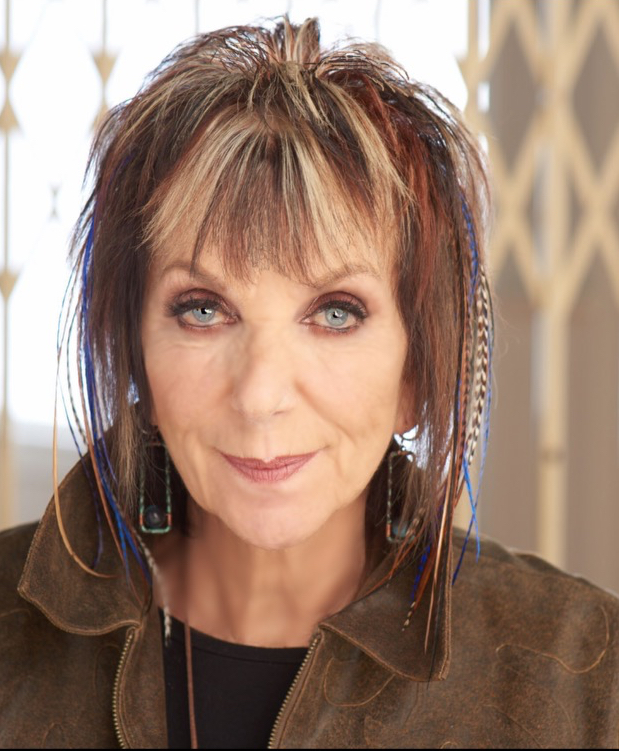
But I met my husband in a nightclub in Greenwich Village, New York. I was a folk singer and I wanted to be a Broadway actress. That was my dream for my life. But as events would have it, I wound up with a recording deal in 1968 on Columbia Records, which is a folk album, and because of that I got to do some nightclubs down in the village, my friend and I, and there was a place called Gerde’s Folk City and it was a really cool nightclub where Bob Dylan performed and Peter, Paul, and Mary and Simon and Garfunkel and Joan Baez, all the big times there. It was exciting.
There was another act that was performing at the same time that we were called the Loomba Boys. And they had a young man in that group who was so handsome and he was a cowboy from Kentucky. His name was Joe Isaacs. So immediately, you know, they say opposites attract. The Jewish kid from the Bronx and a boy that was raised in a Pentecostal home in the mountains of Kentucky. We dated and after a couple of years, we got married. I still didn’t know anything about Jesus. He was raised by a preacher, he knew the Bible, but he wasn’t going to the church at the time.
And through a death in the family—because he had a brother who got killed after a year we were married—that caused us to go to church one night. First time I’ve ever been to church in my life was during that funeral. And my life changed shortly after that within a few months. So that’s kind of my story of how I got introduced to the Messiah, the true Savior of the world.
Sonya Isaacs Yeary: We grew up in Mauro, Ohio, southern Ohio, thirty miles north of Cincinnati, and music was just a part of our lives. I mean, Mom and Dad were already singing together when we were small children and we learned to sing harmony when we were five, six, seven, eight years old. In fact, we recorded when we were just small children singing in harmony. And so it was something that was just surrounding us. And so it was a very natural fit for us to grow up loving music, different kinds of music. We love bluegrass, traditional country, gospel music. We weren’t allowed to listen to much of anything secular. But we still slipped it in as little kids. We were influenced by a lot of different artists.
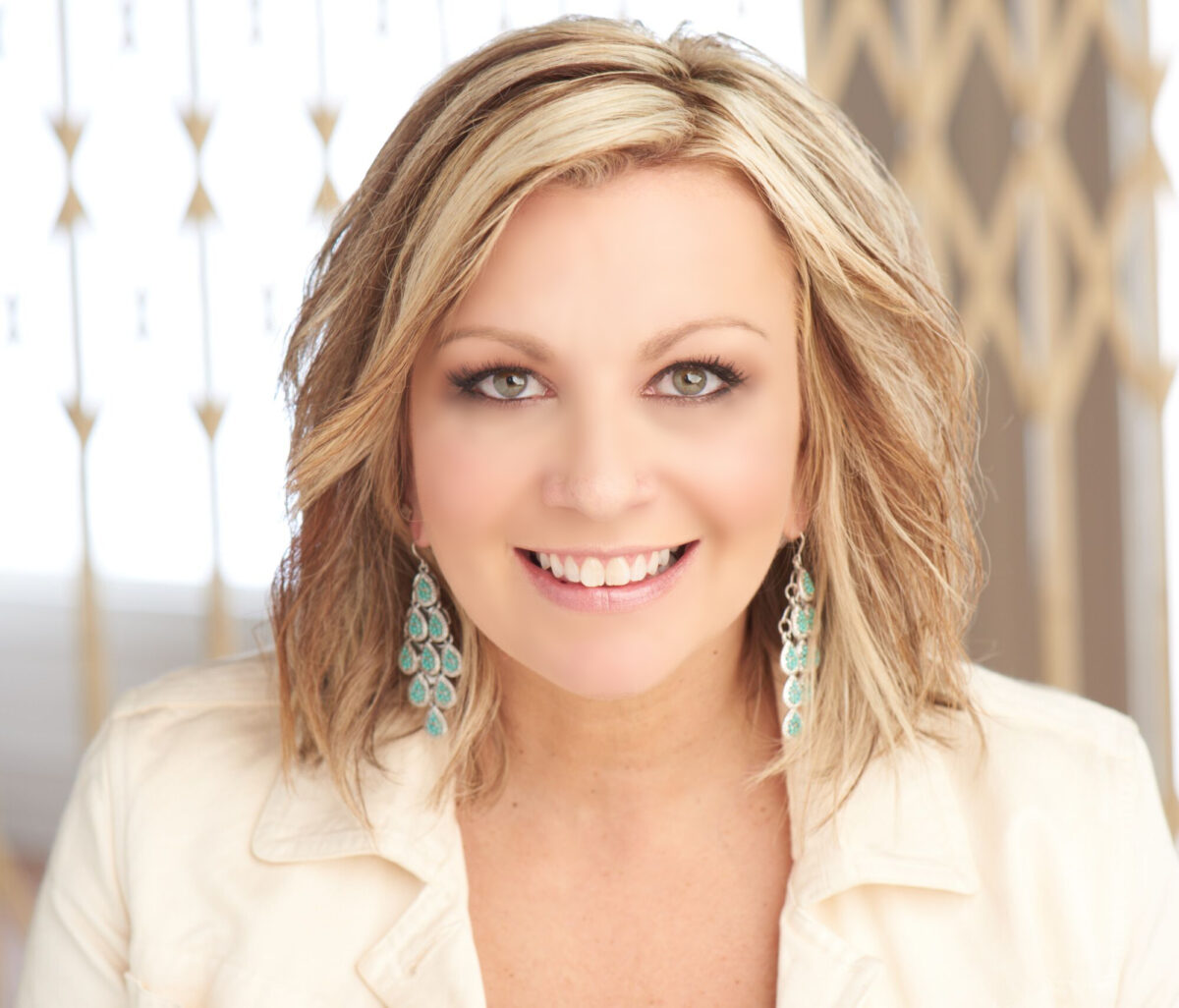
And, you know, we grew up in a Christian home and we were fortunate enough to have a very strong faith surrounding us as well. And so we didn’t realize there was any other way to grow up besides being a gospel singer. I mean, when we were children, they would throw us in the car at first and we went to a van and we went to a van with a trailer and then a really old bus and a newer bus. And in fact, this year is the first year we’ve ever gotten, like, a new bus. So it’s kind of progressed, but it’s just been a part of our lives, you know, and faith has been the core of everything that we are and everything that we’ve ever wanted to do, just to be whatever God wanted us to be.
“We recorded when we were just small children singing in harmony, and so it was something that was just surrounding us. It was a very natural fit for us to grow up loving music, different kinds of music . . . faith has been the core of everything that we are and everything that we’ve ever wanted to do, just to be whatever God wanted us to be. ” – Sonya Isaacs Yeary
Rebecca Isaacs Bowman: So growing up in a musical family with my dad’s history and my mom’s musical history, it was just what happened in our house. When Mom and Dad got saved, they began to take their music and put it together, and that’s how they started singing gospel music. And so it wasn’t uncommon for a guitar or a banjo to be sitting around the house and Sonya, Ben, and I could sing in perfect harmony from the moment we could talk.
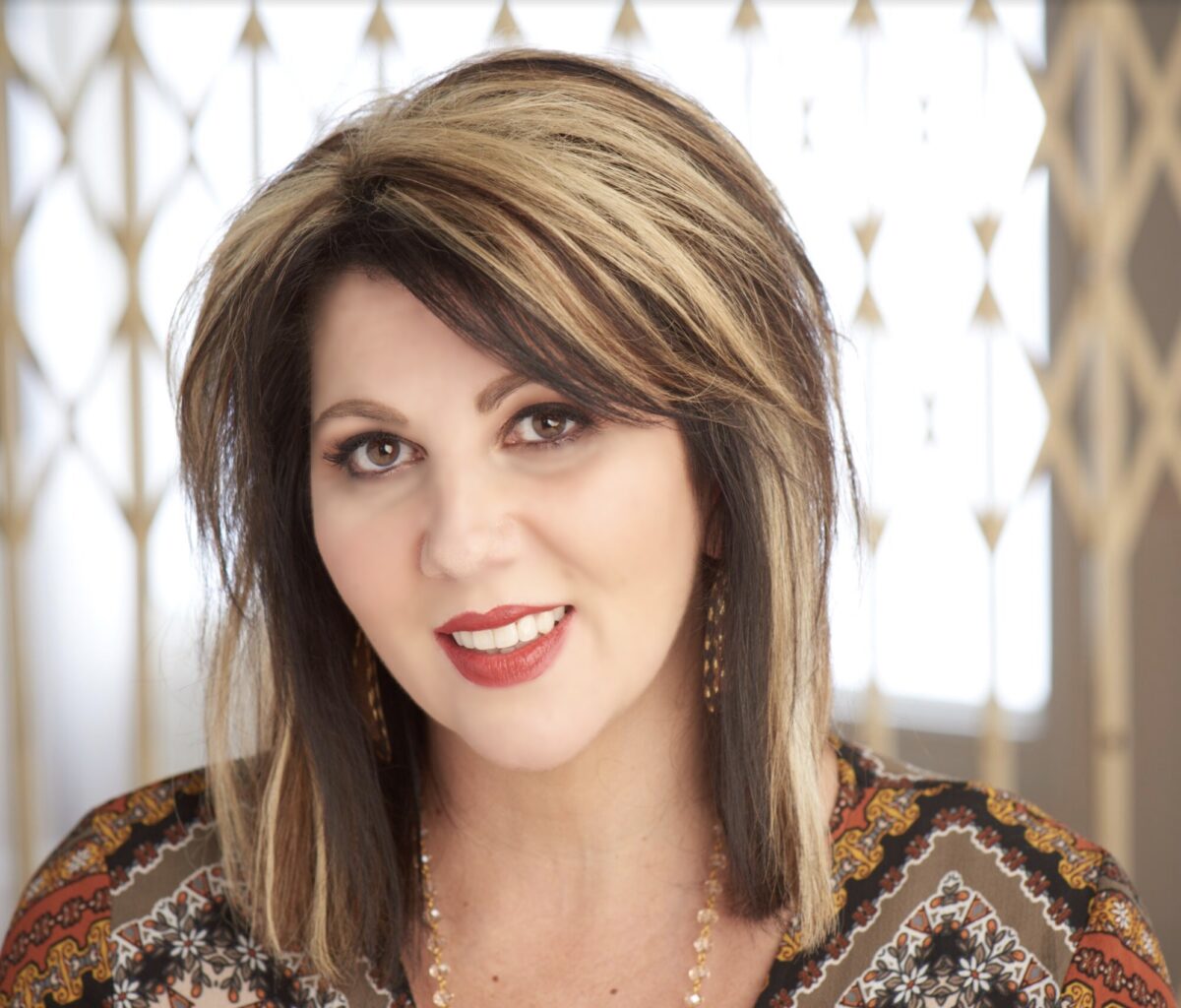
So I remember having, like, no teeth looking in the mirror, singing the third part. And then as soon as mom and dad discovered they needed that part, they put us on a stool and they literally had us sing that part. And the same thing with musicians, as musicians left the band, The Isaacs, when they went full time. Then if our dad saw that we had that talent the next weekend, we were in that position. And so, you know, it’s just the home that we grew up in.
But it’s not been probably until I’ve been older—I accepted Christ when I was a child and prayer was a big part of our home. It was part of our daily life. Our parents prayed out loud, as you can imagine, our grandfather on our dad’s side, he was the baby of a Pentecostal preacher. So they prayed three times a day, literally, they got down on their knees and pray three times a day. So that was such a big part of my dad’s culture that when my mom and dad came together, they continued that tradition. So there was a banjo and a guitar and prayer in our home all the time. So it just kind of fit like a glove for us. And as I’ve gotten older, I’ve really cherished the values that they have passed down, not just musically, but through the prayer that they’ve instilled in us. And, you know, the Isaacs are blessed to do many genres of music and sing on many artists’ records and go to many platforms. But I think that we really like to just plant a seed of faith everywhere we go and take the music and our faith, not hammer them on the head with the gospel, but just plant a seed of hope. And that all came from the heritage that we grew up in.
“There was a banjo and a guitar and prayer in our home all the time.” – Rebecca Isaacs Bowman
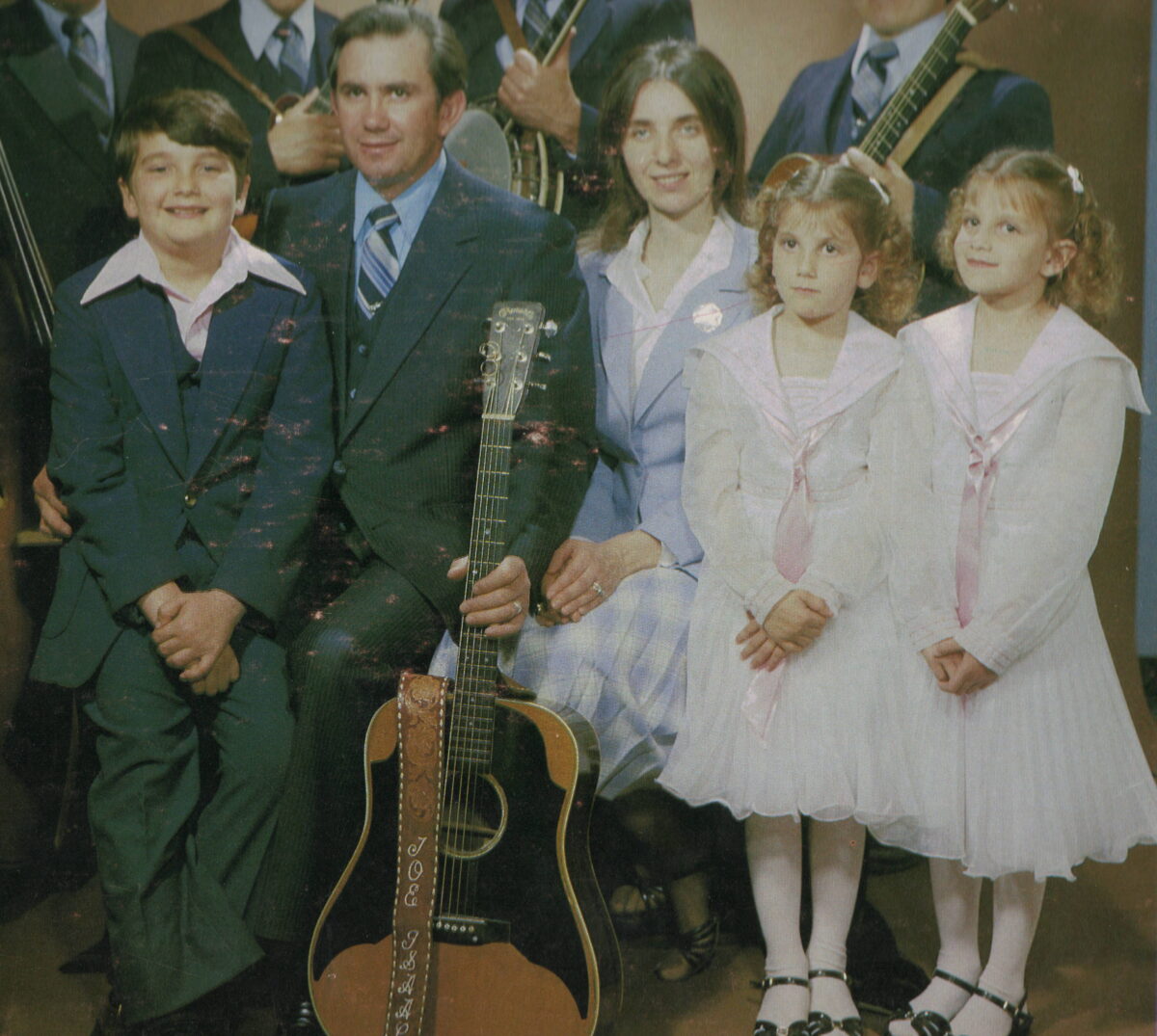
Ben Isaacs: So for me, I feel like that we weren’t given, really, a choice to learn to play music because it was always in our family. You know, our dad has many times said the way we learned how to play our instruments is he would lay it on the bed and dare us to touch it. So there’s a little bit of truth in that. But, you know, as Becky said a little earlier, when one of the band members would quit in the group, we all three at a young age could sit down on piano and play any melody that we wanted to, you know. But as a band member, being a bluegrass band, as a band member would quit, we would just step into that role. To be able to be where I am now and look back on my past and know that God has ordained our family in the positions that we are, I look at it now and I could see the alignment all the way from Mom and Dad getting saved into who we are today, who we are independently—we all have our own careers independently. But when we come together, the family vibe is still there, the love, and I think that people ask me all the time, “Well, how in the world can you guys be your ages and still travel together?” And the only thing I know how to answer that is it’s just because we know what God has called us to do.
“To be able to be where I am now and look back on my past and know that God has ordained our family in the positions that we are, I look at it now and I could see it the alignment all the way from Mom and Dad getting saved into who we are today, who we are independently.” – Ben Isaacs
Lily Isaacs: Being a family on the road is unique. Of course, I feel blessed to be able to travel with my family. When I left New York City and got married, I left my family many, many miles away. And I always knew when I had children, I tried to be the best mother ever because I enjoyed being a mother and then with my grandchildren. So I feel so grateful that our family is still traveling. And I always respect my children. I think they’re amazing human beings. I trust them in every way. They’re smart, they’re articulate, they’re talented, they’re kind. So I had to get a mindset that when I’m home, I’m mom. But when we’re on the bus, I’m a business partner. And that’s the way I try to conduct my life, and I think it’s worked that way.
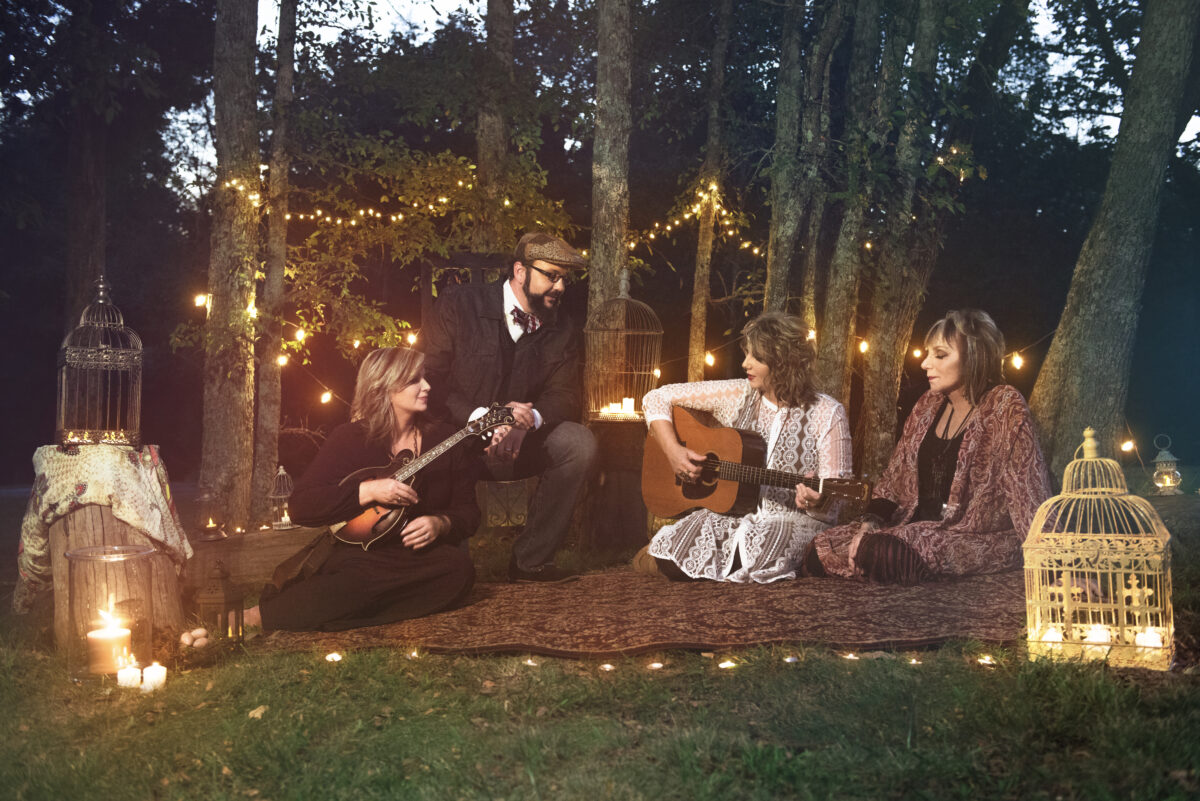
Sonya Isaacs Yeary: We’re so close that, you know, even when we’re not on the road, we choose to spend time together. And we know how blessed we are to have each other, too. I mean, it’s very unusual to spend three or four days of your life with your siblings and your mom for your whole life. Like not many people have ever done that. And so I guess because we’ve never known anything different, it’s just part of us. And I think a lot of people envy and respect the tightness and the closeness that we have, we’re very good at welcoming friends into our fold who, you know, a lot of times have never had that kind of a family bond, or maybe they have an estranged family and they’re very drawn to us because I think they see the kind of love for one another in us that they always wish they could have. And we welcome them in and we love them and we become lifelong siblings. We have lots of bonus Isaacs siblings out there. And so we are very blessed to be this connected.
“We know how blessed we are to have each other.” – Sonya Isaacs Yeary
Rebecca Isaacs Bowman: We decided a long time ago that we would rather be family than work together. The value of our family was more important than having a career. And, you know, we’ve seen a lot of groups that we’ve admired over the years that could not get along. Their talent was amazing, but they couldn’t get along. And so it is a healthy balance when we’re on the bus. The only privacy we have is closing that curtain and getting into your bunk. And we know if you need your space, don’t come open my curtain right now. But we have consciously made that decision when we’re stressed out or, you know, we fight like any other siblings, but usually we hug it out and just like, eventually, “I’m sorry, I was wrong. I didn’t respect your opinion on that.” And, you know, we pray together, too. And so I’m convinced that if you can just lay your egos at the door and pray together, then you’ll stay together.
“I’m convinced that if you can just let your egos at the door and pray together, then you’ll stay together.” – Rebecca Isaacs Bowman
Ben Isaacs: I would say being a family and traveling together is not easy. We’ve been in places before where we felt like counseling was good just because of communication and, you know, the thing that I’ve taken away from that is we all have the same goal in mind. We just have different ways of getting there. In that, we have to respect each other. It’s not that my idea is more important than theirs, it may be to me, but this is important to them. So you’ve got to find what is the best for everybody, you know, it may not be my idea, and I have to be man enough to go, “I was wrong.” But there’s been times where we’ve had some disagreements before we go on stage and we’ll look at each other on stage and smile through it.
Coming Together Through Christ
Lily Isaacs: Well, I grew up not knowing anything about Jesus, and I told my story about how when I married my husband about a year into the marriage, he had a brother that was four years older than he was. Twenty-seven years old, died in a car accident tragically one night right around Christmas time. And he had four small children at home. It was really sad. Out of seventeen children, nothing had ever happened like that in the family. So of course, everybody was upset and grieved. And so they had a funeral at the church and I knew I had to go. I’d never been in church before in my life, but I knew I had to go. So when we went into that church, even at the funeral packed full of people that were grieving, it felt like a community. It felt like everybody was just so kind and loving. And of course, it was a lot of crying going on. It was a very sad time. And I saw a glimpse of what it was like to have a community of people that prayed together or stuck together.
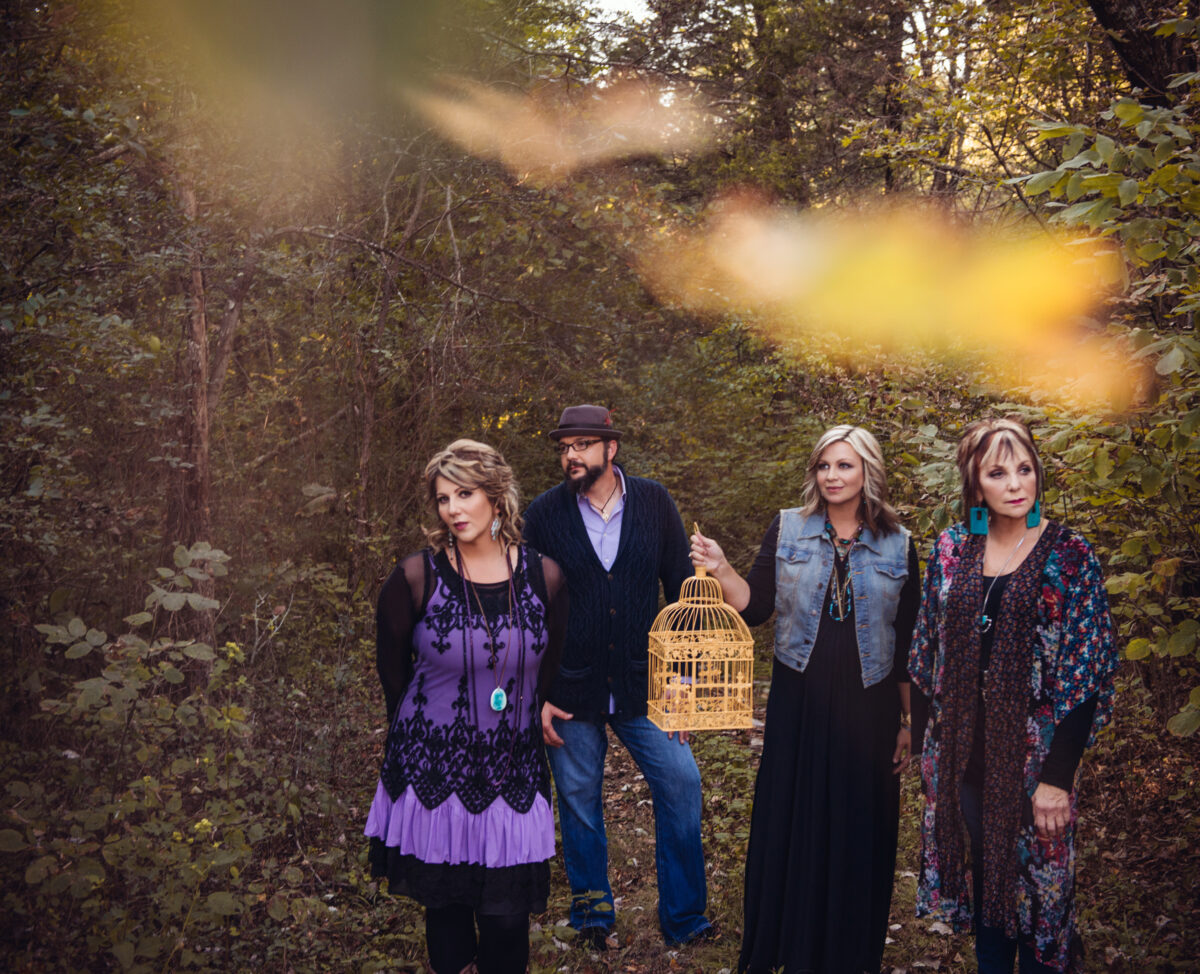
Stressing, though, when I went to the synagogue, it was a totally different experience than that. Synagogue is different, we worship differently and you don’t have a relationship one-on-one like you do in the Christian world. After the funeral was over a day later, my sister-in-law said, let’s all get together at Gilmer’s home church—that was my brother-in-law that died—just the family before everybody goes back to their own states. Well, I really wrestled with that because I knew that my parents wouldn’t like it and I didn’t know how to feel about it. But I knew I wouldn’t be much of a spouse or family member if I didn’t go. That night, we went to church and it was the converted garage, probably held about 100 people. So you couldn’t really hide. But I sat in the very last pew and my husband was on the other end of the pew and I felt like putting a coat over my head. I was ashamed. I didn’t know what to do.
And during the service with all the singing, people were loving on each other, I just felt like something was in the atmosphere. I know it was conviction, but I didn’t know at the time what it was. But that night when the pastor got up and made an invitation to prayer, I didn’t know what to do. I didn’t know how to pray. But somehow I got on my knees right back there in that little wooden pew. And I didn’t know the words to say. I couldn’t say, “God forgive me my sins,” because I didn’t know I was a sinner. I didn’t know how to say, “Save me.” I didn’t know I was lost. So I just got down on my knees and I cried. But, you know, I love to say this—the minute my flesh hit the floor, God already knew my heart. He knew I was open to whatever He had. And it was a process. It really was.
“The minute my flesh hit the floor, God already knew my heart. He knew I was open to whatever He had. And it was a process.” – Lily Isaacs, on her conviction to becoming a Christian
Ben Isaacs: When you come see The Isaacs concert, it may be here at the Grand Ole Opry or it may be at a bluegrass festival. It may be a church or maybe a Gaither event or, you know, it may be at Third and Lindsey downtown or something. We sing the same songs everywhere we go. You know, we’ve been very, very cautious in our career to choose songs that are representative of good life, good family, good morals. So I would say that I think that choosing the type of songs that you sing and knowing that you can sing them anywhere makes a big difference in how you can spread the word and the word of hope. Because, you know, we may do a song about Grandpa, and then follow with “Amazing Grace,” you never know.
“I think that choosing the type of songs that you sing and knowing that you can sing them anywhere makes a big difference in how you can spread the word and the word of hope.” – Ben Isaacs
Rebecca Isaacs Bowman: I always like to say we’re pretty transparent. You know, as a family, I think people can identify with the truth. They can identify with letting the walls down and just let me be part of the mistakes or the things in our lives. So we’re pretty healing. Yeah. I mean, we’ve all battled sickness or addiction in our family. We’ve battled divorce and all these things. And some people think that hiding it from your fans sets them above or apart or whatever. I don’t how they feel. I know for us, transparency has worked because if they feel like they can identify with you, then you automatically have a place in their heart. And so through the years, Sonya and I have literally written songs of people, stories that have come to us and our life stories and any good ballads you hear that we’re crying on, you can pretty much have a glimpse into the look of our life that day when we were at the song. And so we choose those songs because we feel like if our home is going through it, then most likely their home is going through it. And so we find that transparency is the best way to spread our music.
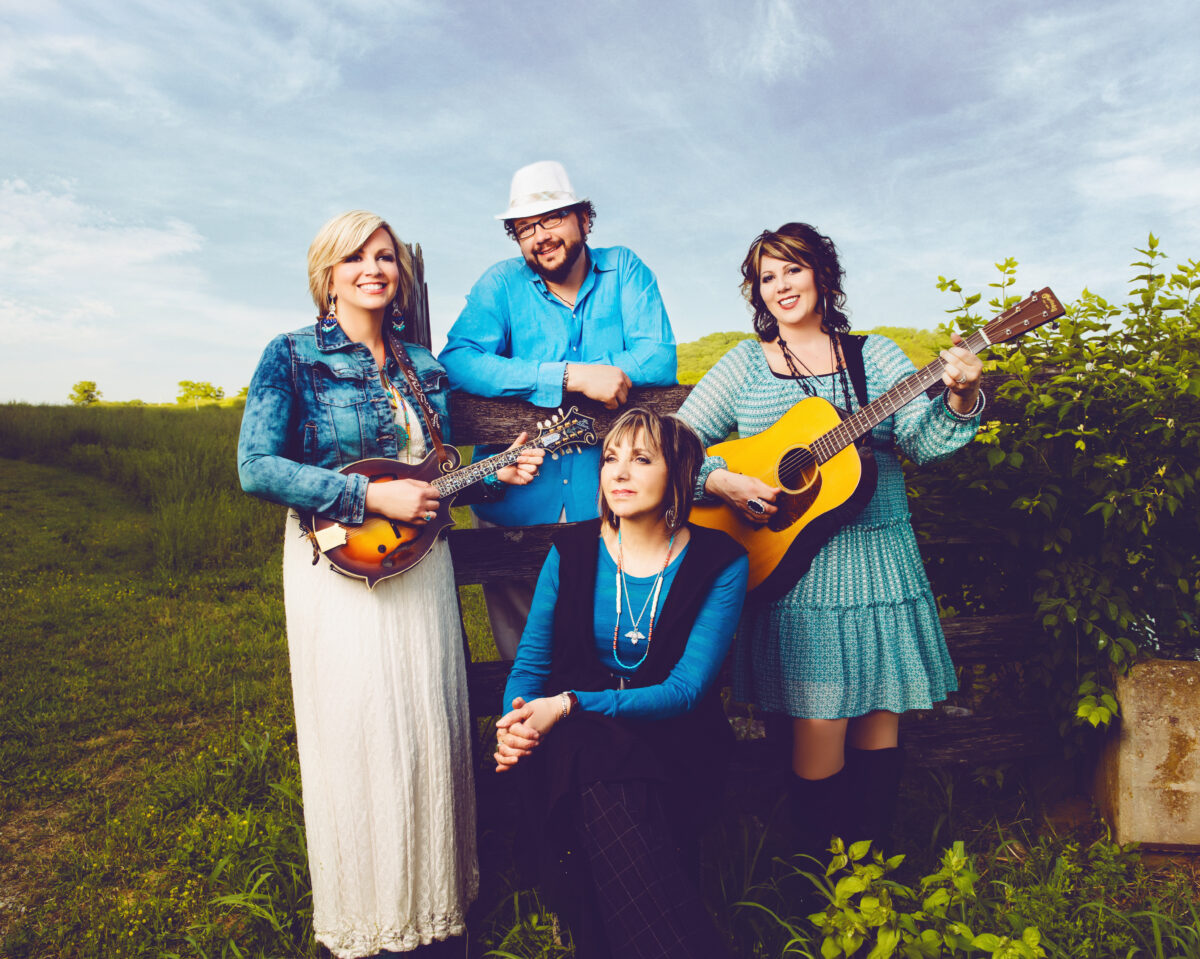
Sonya Isaacs Yeary: I like to say too that we’ve had the opportunity and been blessed to sing it. So many really non-churchy type venues and places that typically welcome in, you know, more secular artists and country artists, sometimes being Jesus is the only Jesus that they ever hear or see. And sometimes the songs that carry the message of hope and peace and the gospel of Jesus, the songs are the only message they’ll ever hear. They wouldn’t dare go to a church. They’ve been wounded by a church or a church member or a Christian. And they’re sitting in an audience and they’re watching an Isaasc concert. And they can relate to some of the songs we sing because they might be familiar songs. But then when they really get to know us, they really hear our hearts. And we do love to share what God has brought us through and His faithfulness and everything, because He is so faithful, He’s been so faithful to us through all the things and so much more. And He still is leading us through.
“We do love to share what God has brought us through and His faithfulness and everything, because He is so faithful, He’s been so faithful to us through all the things and so much more. And He still is leading us through.” – Sonya Isaacs Yeary
This is a passage from Jesus Always, March 23rd:
I AM THE RISEN ONE—your living God. Celebrate the Joy of serving a Savior who is exuberantly alive! Rejoice also in My promise to be with you continually—throughout time and eternity. These truths can sustain you through the greatest trials or disappointments you will ever encounter. So walk boldly along the path of Life with Me, trusting confidently in the One who never lets go of your hand. Consider what I offer you: Myself, forgiveness of all your sins, forever-pleasures in heaven. This is all so extravagant and lavish that you cannot comprehend it fully. That is why worshiping Me is so important: It’s a powerful way of connecting with Me that transcends your understanding. It also proclaims My Presence. There are numerous ways of worshiping Me: singing hymns and praise songs, studying and memorizing My Word, praying individually and with others, glorying in the wonders of My creation. Serving and loving others with My Love can also be worship. Whatever you do, do it all for the Glory of God—My Glory!
It’s a beautiful devotion, and I love Jesus Always. It’s sitting literally on my table in my sunroom and I read it nearly daily when I’m home, always. And I’ve had encounters in my life where I would need an answer from God. So I know that Mrs. Young, when she wrote these devotions, she spent time praying before she wrote these books because it wasn’t that God suddenly put that scripture in the book for me, or that devotion that day, it was that God put it in my heart to look there. So to me, these kinds of devotions are so important because God can lead you to a passage or a devotion or something that you need for the specific time in your life, and this is a wonderful one, March 23rd, because we do worship Him and we found out that we praise our way through pain. Praising God is the key to joy and life, to joy and happiness.
Narrator: To learn more about The Isaacs and their music, please visit www.theisaacs.com.
If you’d like to hear more stories about calling on God in our time of need, check out our interview with Dave Pittman.
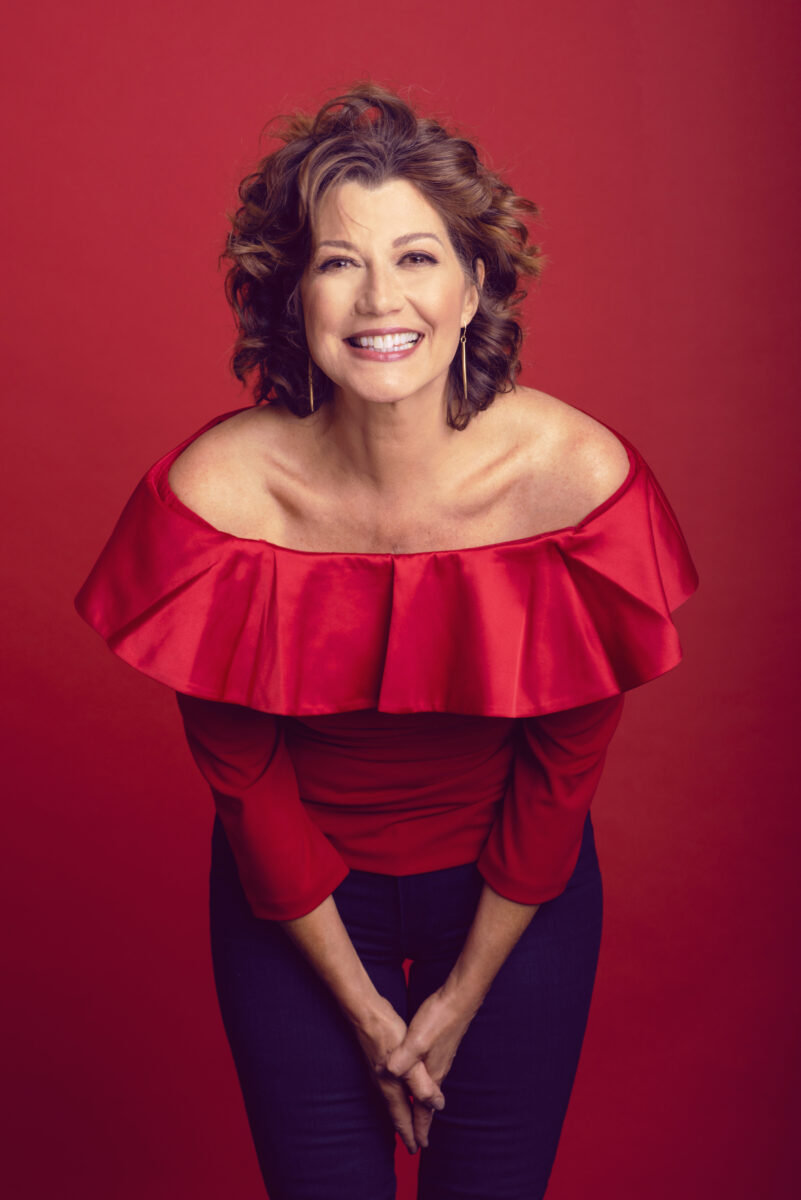
Narrator: Next time on the Jesus Calling Podcast, we sit down with legendary Christian singer Amy Grant, who shares how her faith’s developed over the years.
Amy Grant: A beautiful thing about being in the contemporary Christian music community is at every gathering, it’s pretty much a given that everybody there knows we are on a journey, we’re on a faith journey. We do our best. We fail. We’re all forgiven. We’re sort of all operating with the same mandate: love each other and love God. So that’s beautiful. And to create songs that encourage that and other people, that’s good. And the truth is everybody’s on a faith journey, whether they know it or not.

